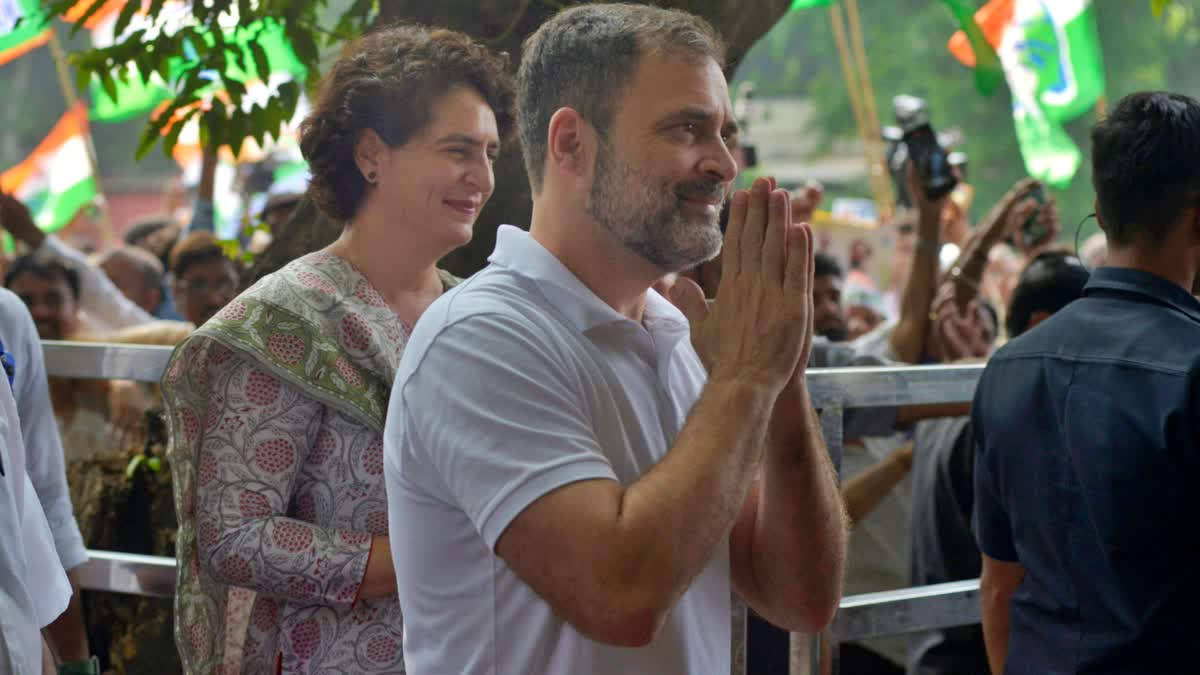New Delhi: After the Supreme Court stayed the conviction of Congress leader Rahul Gandhi in a defamation case, the Lok Sabah Secretariat issued a notification revoking his disqualification from the Lower House, on Monday.
According to the notification, the Supreme Court of India has passed an order on Aug. 4, 2023 in Special Leave to Appeal staying the conviction of Rahul Gandhi, Member of Lok Sabha representing the Wayanad Parliamentary Constituency of Kerala, the Surat Chief Judicial Magistrate's judgment on March 23, 2023.
In view of this order, the disqualification of Rahul Gandhi, notified vide Gazette Notification no. 21/4/3)/2023/TO(B) dated March 24, 2023 in terms of the provisions of Article 102(1)(e) of the Constitution of India read with Section 8 of the Representation of the People Act, 1951, has ceased to operate subject to further judicial pronouncements, the notification read.
On Friday, Supreme Court had stayed the conviction. Here is what the Supreme Court said on the conviction of Congress leader Rahul Gandhi in a 2019 defamation case over his Modi surname remark, while paving the way for revival of his Lok Sabha membership.
- Except the admonition given to Gandhi by SC in 2019 contempt proceedings, no other reason has been assigned by the trial court judge while imposing the maximum sentence of two years.
- Only on account of the maximum sentence of two years imposed by the trial judge, the provisions of sub-section (3) of Section 8 of the Representation of the People Act, 1950, have come into play.
- Had the sentence been even a day lesser, the provisions of subsection (3) of Section 8 of the Act would not have been attracted.
- When an offence is non-cognizable, bailable and compoundable, the least that the trial judge was expected to do was to give some reasons as to why, in the facts and circumstances, he found it necessary to impose the maximum sentence of two years.
- Appellate Court and HC have spent voluminous pages while rejecting the application for stay of conviction, these aspects have not even been touched in their orders.
- No doubt that the alleged utterances by the appellant are not in good taste.
- A person in public life is expected to exercise a degree of restraint while making public speeches.
- Rahul Gandhi ought to have been more careful while making the public speech.
- Ramification of subsection (3) of Section 8 of the Act are wide-ranging. They not only affect the right of the appellant to continue in public life but also affect the right of the electorate, who have elected him, to represent their constituency.
- Pendency of Gandhi's appeal would not come in the way of the Appellate Court in proceeding further with the appeal.
